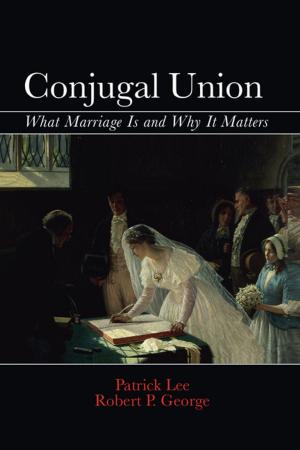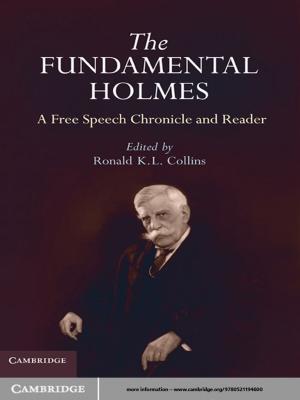| Author: | David Foxton | ISBN: | 9781107461260 |
| Publisher: | Cambridge University Press | Publication: | September 26, 2013 |
| Imprint: | Cambridge University Press | Language: | English |
| Author: | David Foxton |
| ISBN: | 9781107461260 |
| Publisher: | Cambridge University Press |
| Publication: | September 26, 2013 |
| Imprint: | Cambridge University Press |
| Language: | English |
Karl Llewellyn described Thomas Scrutton as 'the greatest English-speaking commercial judge of a century'. Scrutton played a key role in a number of politically sensitive court cases from the Great War to the 1930s. This biography draws on unpublished sources to evaluate his contribution as counsel, campaigner and judge in a number of areas: the development of a modern law of copyright; the checking of executive power in and after the Great War; and his attempt to develop English commercial law on a basis which reflected the practices and expectations of the commercial community. In addition to providing valuable insights into the nature of legal practice and advancement in the Victorian and Edwardian eras, the book examines Llewellyn's claim that Scrutton adopted a 'realist' approach to the development of commercial law, and uses the body of Scrutton's judgments to explore the limits of a 'realist' approach to jurisprudence.
Karl Llewellyn described Thomas Scrutton as 'the greatest English-speaking commercial judge of a century'. Scrutton played a key role in a number of politically sensitive court cases from the Great War to the 1930s. This biography draws on unpublished sources to evaluate his contribution as counsel, campaigner and judge in a number of areas: the development of a modern law of copyright; the checking of executive power in and after the Great War; and his attempt to develop English commercial law on a basis which reflected the practices and expectations of the commercial community. In addition to providing valuable insights into the nature of legal practice and advancement in the Victorian and Edwardian eras, the book examines Llewellyn's claim that Scrutton adopted a 'realist' approach to the development of commercial law, and uses the body of Scrutton's judgments to explore the limits of a 'realist' approach to jurisprudence.















